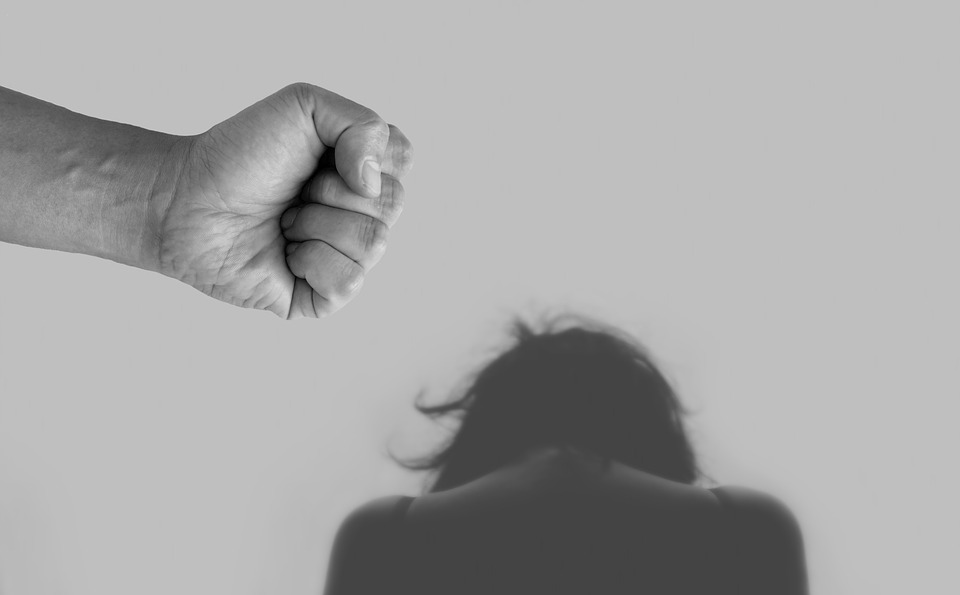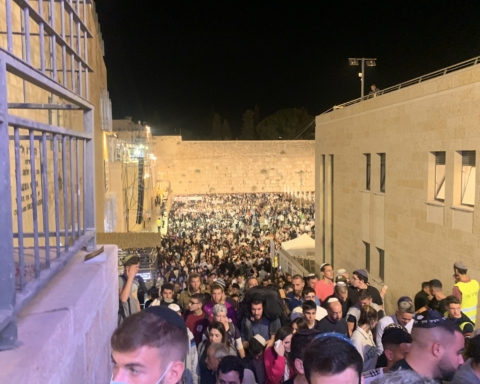In families where domestic violence is part of everyday life, they suffer from the pandemic and the many lockdowns. Casualty numbers have skyrocketed, and for many women, there are only a few facilities that offered help, as most had closed their doors due to Corona.
Our team visited an emergency shelter and spoke to the staff about the difficult situation…
In the middle of a chic residential area in a city in the center of Israel, there is a special place hidden behind a high guarded gate: a women’s shelter built for the Corona period, where 12 women and their children find temporary refuge. They can stay for 14 days, and then they must move on.
Their stories are all different, with backgrounds from Jewish religious to Arabic to families with Ethiopian roots, yet they are all here representing Israeli society. Nearly all of them have children and most of them are not in a women’s shelter for the first time. Most of the women have one thing in common. Their situation has deteriorated dramatically during the pandemic.
The numbers prove this: complaints about domestic violence have risen by 300 percent since the beginning of the Corona crisis in Israel. Since the beginning of 2020, more than 20 women have been killed by their partners. This is shown by a depressing study by the WIZO organization: “The monstrous frequency of cases of domestic violence during the Corona crisis should be a wake-up call for our entire society, but especially for the government,” said WIZO Chairman Anita Friedman. “There is a lack of resources and strategies to deal with the enormous damage caused by quarantine and the closure of many facilities to tens of thousands of women caught between a coronavirus pandemic and a domestic violence pandemic. ”

An emergency room was needed
A huge problem during the pandemic was the fact that the 14 women’s shelters in the country did not want to accept new women for fear that they could be infected with Corona. A kind of “emergency room” was urgently needed. Rivka Naumann, the WIZO director of the department for the advancement of women, managed to plan and set up such an emergency shelter within a few weeks. In this transitional women’s shelter, twelve people affected and their children will find protection for two weeks, and because they are not allowed to leave the house during these two weeks and live-in quarantine, so to speak, they can then move to a real women’s shelter.
For Michal Orion, who runs the emergency women’s shelter, the reasons for the rise in violence during the pandemic are clear: “Women have usually been with these violent men for a long time. But let’s put it this way: Usually, women see their husbands in the morning and then sometime after work. The men were tired in the evenings, the women had time to ‘take a breath’ during the day. And then there was lockdown, no one left the house. And suddenly these families were crouching on top of each other, often under financial pressure because so many people had lost their jobs. Of course, this has increased the problem of domestic violence immensely. ”
It is missing everywhere
The emergency shelter is just a drop in the ocean; significantly more women need emergency shelter than there are places. And the referral is often difficult: An Arab woman and her two children have been living in the emergency room for almost a month. They would have to be passed on to a women’s shelter that has Arabic-speaking social workers and psychologists, and that is not that easy to find. “There are two women’s shelters in the country that are exclusively for Arab families and two for ultra-Orthodox,” explains Michal Orion, “And of course the woman could also be taken in another home, but the children are small and do not yet speak good Hebrew. But they urgently need intensive support in their mother tongue.”
WIZO estimates that around 200,000 Israeli families suffer from domestic violence. In 2018, 26 women were killed by their partners or other male family members. In 2019, there were 19 women. Together with other NGOs, WIZO is fighting to ensure that the topic never disappears from the agenda. In a country where terror and war will always remain the most threatening problems, there is sometimes a need to be emphatically reminded to combat everyday violence. Because despite generous donations and state aid, there is a lack of all corners and ends. The pandemic and its economic consequences have only made this situation worse.
The research for this article was carried out for the book “Rebels with a Cause – 100 Years of WIZO” to be published in spring 2021.
This article has been translated from German, and written By Katharina Höftmann Ciobotaru








